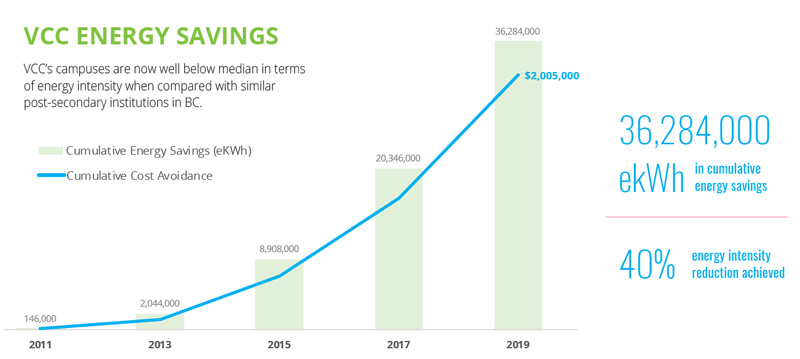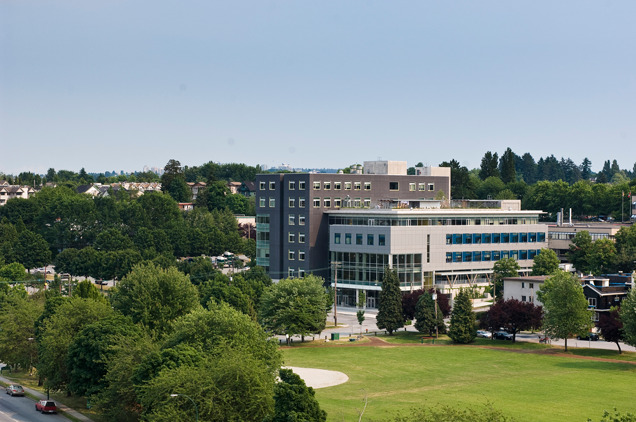Over the last nine years, VCC has proudly exceeded two million dollars in total energy cost avoidance. While VCC had set the goal of reaching 25% below 2010 levels by 2020, they have already well exceeded this goal with a 40% reduction in energy intensity. These figures represent actual energy savings of 36,284,000 ekWh, which is equivalent to energy consumption of 1,650 households in British Columbia for an entire year. VCC has also cut greenhouse gas emissions from both Broadway and Downtown campuses by nearly half since 2010.


Reducing carbon footprint through innovative practices
As part of their overall Strategic Plan, VCC committed to seeking innovative and improved practices that reduce their carbon footprint. VCC has since undertaken significant projects to change the way energy is used on campuses.
Major upgrades undertaken include LED lighting installation for exterior and parking lights, adding occupancy sensors and digital controls to campus classrooms, and implementing energy saving measures from continuous optimization programs for heating and cooling systems. These projects have, in part, helped keep VCC’s campuses well below median in terms of energy intensity when compared with similar post-secondary institutions in BC. Going forward, projects being reviewed include electrification (kitchen equipment, ventilation and domestic hot water heating systems), demand control ventilation, and photo-voltaic system installation.
Creating a culture of energy conservation
VCC has also worked to integrate energy conservation and sustainability into the culture on campus. VCC is part of BC Hydro and FortisBC’s Energy Wise Network program, which consists of both public and private sector organizations committed to saving energy through behaviour change and engagement.
Over the years, VCC’s energy team has collaborated with IT staff to update computer settings to switch to energy saving modes while the user is away. VCC’s “Take the Stairs” campaign encouraged people on campus to skip the elevator, thereby saving energy and staying active. In early 2018, VCC’s Facilities Management Team launched an Energy Saving Ideas Competition inviting staff to submit their ideas for saving energy on their campuses.
A greener future
Today, with the achievement of over two million dollars of energy cost avoidance and with the college handily meeting energy reduction targets ahead of schedule, VCC is proud to be making progress towards a greener future.
